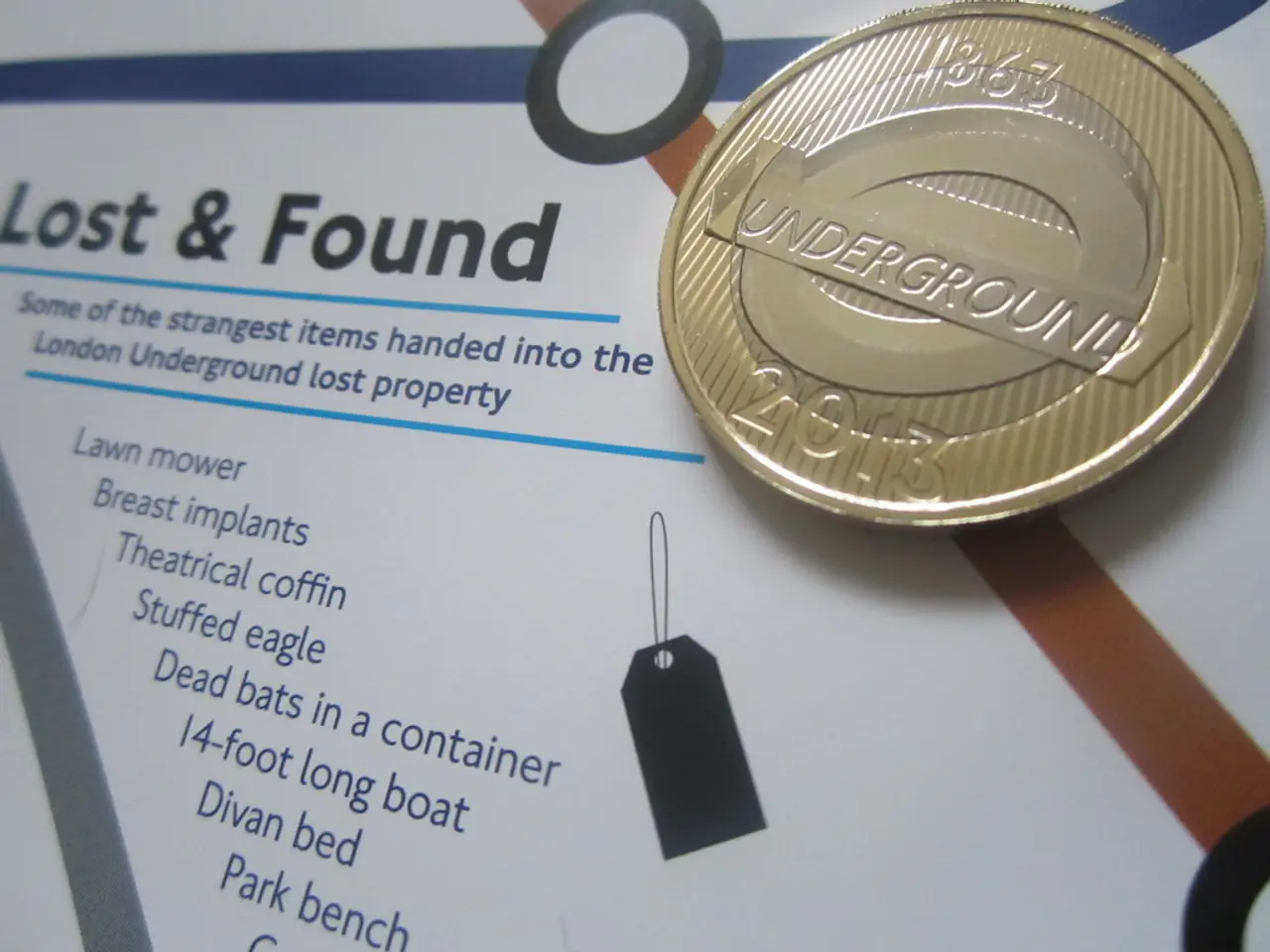Bahrain's Incorporation of Bitcoin within its Financial Architecture!
In the heart of the Middle East, Bahrain is making waves in the world of digital currencies. The Central Bank of Bahrain (CBB) has taken a progressive stance, issuing regulations in 2019 that allow businesses to accept Bitcoin payments, as long as they comply with anti-money laundering and terrorism financing laws [1]. This move positions Bahrain as a pioneer in the Middle East for digital asset oversight.
Bahrain's focus on digital currencies, particularly stablecoins, is evident in its formal regulatory framework effective from July 2025. The Stablecoin Issuance and Offering (SIO) Module ensures transparency and financial stability by tightly controlling issuers and maintaining full reserve backing stored with licensed custodians [1]. This regulatory clarity aligns with Bahrain's broader fintech strategy, which aims to foster digital innovation, financial inclusion, and enhanced SME financing through advanced digital banking infrastructure and regtech initiatives [2][3].
While Bahrain is currently focusing on stablecoins, its regulatory framework and sandbox-friendly approach pave the way for the future integration of broader cryptocurrencies like Bitcoin within its financial system. The country's early adoption of crypto-friendly policies, coupled with infrastructural improvements and regional collaboration, suggest an increasing acceptance of cryptocurrencies within mainstream finance [3][4].
One of the key advantages of Bitcoin is its ability to facilitate cross-border transactions with minimal fees, making it particularly beneficial for small businesses that rely on international trade [4]. Bitcoin's decentralized nature, secure transactions, and fast processing times make it an attractive alternative to traditional banking methods [5]. Its popularity among young people and tech-savvy individuals is a testament to its appeal [6].
Financial institutions in Bahrain are already exploring the potential of Bitcoin. For instance, BFC Group Holdings collaborated with BitPay in 2020, enabling customers to purchase goods and services using Bitcoin [7]. The world is moving towards a digital economy, with Bitcoin and other cryptocurrencies playing an increasingly important role [8].
Despite the challenges that need to be overcome before cryptocurrencies can become mainstream, their potential is undeniable. Bitcoin, as a digital currency, enables people to exchange goods and services without the need for a third-party intermediary like banks [9]. Cryptocurrencies offer lower fees for global transactions, enhanced security against fraud or theft, and greater freedom from traditional banking systems [6].
In Bahrain, the possibilities for the use of cryptocurrency are truly endless. The country's forward-thinking approach to digital currencies could bring more opportunities for its financial industry, making Bahrain a hub for digital currencies in the Middle East [10]. As the world continues to innovate and develop blockchain technology, the use of cryptocurrency is likely to become more widespread [11].
References:
[1] Central Bank of Bahrain. (2021). Regulatory Framework for Stablecoins. Retrieved from https://www.cbb.bahrain/en/Regulations-and-Guidelines/Regulatory-Framework-for-Stablecoins
[2] Central Bank of Bahrain. (2020). Fintech Strategy 2020-2023. Retrieved from https://www.cbb.bahrain/en/Regulations-and-Guidelines/Fintech-Strategy-2020-2023
[3] Central Bank of Bahrain. (2019). Regulatory Sandbox. Retrieved from https://www.cbb.bahrain/en/Regulations-and-Guidelines/Regulatory-Sandbox
[4] Central Bank of Bahrain. (2019). Virtual Asset Providers. Retrieved from https://www.cbb.bahrain/en/Regulations-and-Guidelines/Virtual-Asset-Providers
[5] Central Bank of Bahrain. (2019). Bitcoin Payments. Retrieved from https://www.cbb.bahrain/en/Regulations-and-Guidelines/Bitcoin-Payments
[6] Central Bank of Bahrain. (2021). Cryptocurrencies and Their Advantages. Retrieved from https://www.cbb.bahrain/en/Regulations-and-Guidelines/Cryptocurrencies-and-Their-Advantages
[7] BFC Group Holdings. (2020). Press Release: BFC Group Holdings and BitPay Collaborate to Enable Bitcoin Payments. Retrieved from https://www.bfcgroup.com/press-releases/bfc-group-holdings-and-bitpay-collaborate-to-enable-bitcoin-payments/
[8] World Economic Forum. (2021). The Role of Cryptocurrencies in the Digital Economy. Retrieved from https://www.weforum.org/agenda/2021/04/the-role-of-cryptocurrencies-in-the-digital-economy/
[9] Investopedia. (2021). What is Bitcoin? Retrieved from https://www.investopedia.com/terms/b/bitcoin.asp
[10] Central Bank of Bahrain. (2020). Bahrain's Fintech Landscape. Retrieved from https://www.cbb.bahrain/en/Regulations-and-Guidelines/Bahrains-Fintech-Landscape
[11] International Monetary Fund. (2020). Crypto-Assets: Implications for Monetary Policy, Financial Stability, and Regulation. Retrieved from https://www.imf.org/en/Publications/Policy-Papers/Issues/2020/10/28/Crypto-Assets-Implications-for-Monetary-Policy-Financial-Stability-and-Regulation-473786
In the progression of Bahrain's fintech strategy, the focus on cryptocurrencies like Bitcoin could further foster digital innovation. With regulatory clarity and the potential integration of Bitcoin within its financial system, Bahrain could attract more investments in digital currencies.




